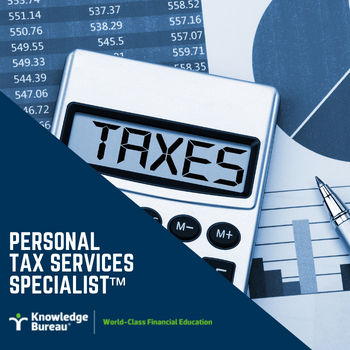Hedge Inflation Erosion With These Tax Tips

There are four important strategies to maximize income with tax efficiency during both inflationary and potential recessionary headwinds. Consider introducing them to your clients as part of your fall tax filing strategies:
1. Erase Tax Filing Errors: Errors or omissions on deductions and credits are recoverable from the prior ten years. Prepare a review of those returns and reclaim overpaid taxes.
2. Crush Tax Spikes: Will unusually large income receipts – dividends, capital gains or the sale of a business that qualifies for the capital gains exemption, for example – be subject to current or proposed new minimum taxes? Plan to work with tax accountants to understand minimum tax recoveries in these cases. Also, help clients understand the effect of unusual income sources on their social benefits, like OAS or Canada Child Benefits. Age-eligible taxpayers can reduce their net income with an RRSP contribution if they have contribution room. They can also employ a donation strategy to offset one-time big tax bites.
3. Equalize Pension Income Now. Pension income splitting can occur at age 65 from RRSPs that have matured to pensions either through a RRIF or an annuity. However, many people want to retire before that and minimize their taxes. Review opportunities to use the Spousal RRSP to equalize pension withdrawals between the age of retirement and age 65.
Remember that spousal attribution is avoided if withdrawals are made three years after the last contribution to the plan. There is an exception when the annuitant spouse turns the Spousal RRSP into a RRIF – attribution only occurs on amounts over the minimum requirement. Also, be sure to consider assigning Canada Pension Plan benefits on an equal basis – both spouses must be at least age 60 to do so, however.

4. Manage Dividends from Private Corporations. A high-net-worth individual who is a business owner will pay high rates of tax on ineligible dividends earned from a small business corporation (Canadian Controlled Private Corporation). However, a little-known strategy can be golden in planning for pre-retirees who own a professional corporation.
That is, a working professional who has turned age 65 can pay dividends to a non-working spouse, in any amount, without triggering the TOSI (Tax on Split Income) rules, which would tax that income at the highest rate. The recipient spouse need not be over 65. It’s a great way to equalize income from a professional corporation and/or start melting down other taxable assets, like RRSP deposits – once the working owner-manager retires.
Bottom Line: Proactive conversations about options for the use of tax efficient cash flow can help preserve income and assets during an inflationary and potentially recessionary fall.
Evelyn Jacks is Founder and President of Knowledge Bureau, holds the RWM™, MFA ™, MFA-P™ and DFA-Tax Services Specialist designations and is the best-selling author of 55 books on tax filing, planning and family wealth management. Follow her on twitter @evelynjacks.
Additional Educational Resources: Check out vocational skills courses leading to certification and designation at www.knowledgebureau.com or the new Continuing Education Division for short CE (continuing education) courses on a variety of critical topics in tax, financial and business.
Also, embellish your online learning with Knowledge Bureau’s outstanding faculty in tax, accounting, financial and economic education at the Sept 21 CE Summit and the October 16-18 Distinguished Advisor Conference.